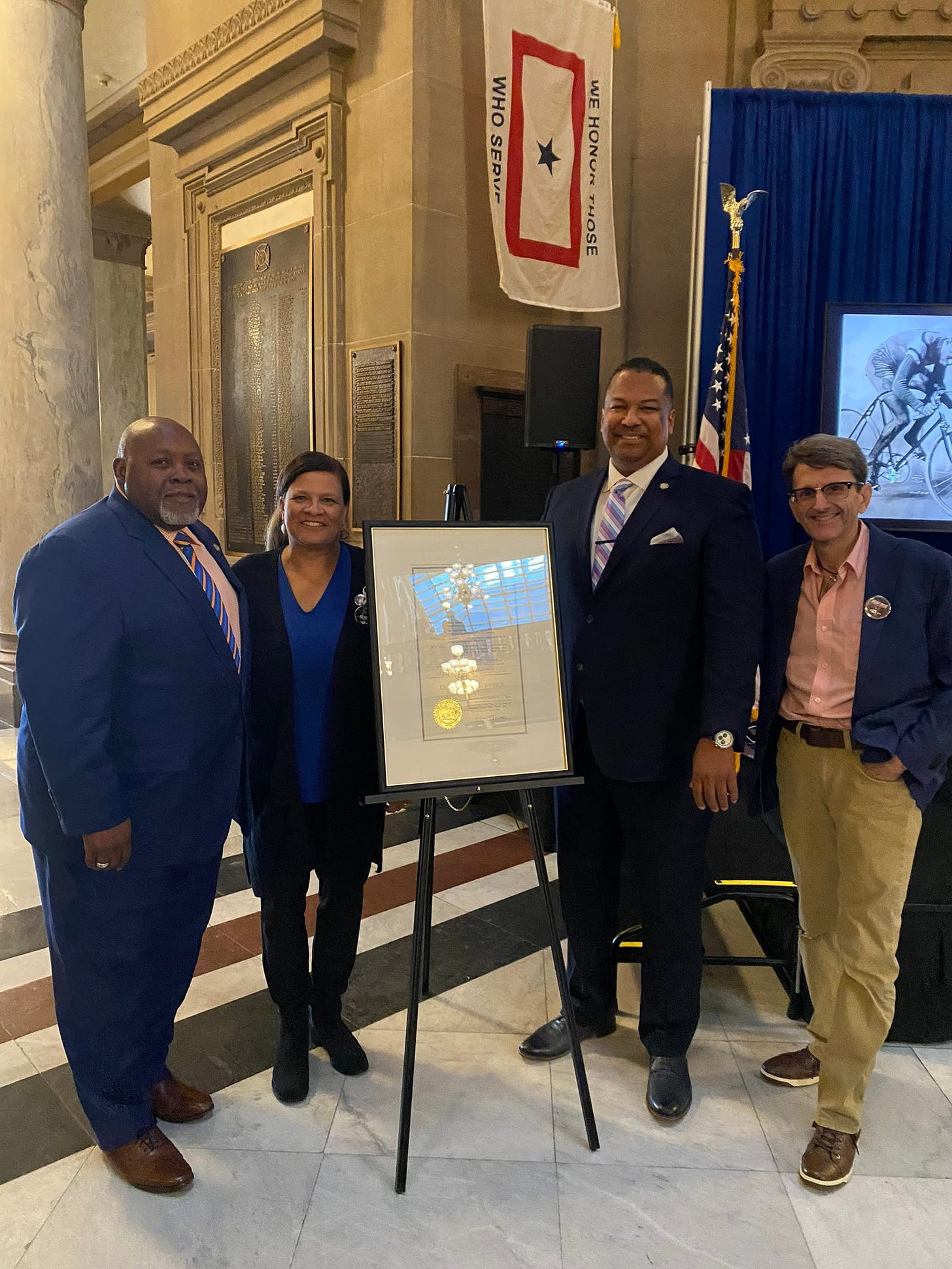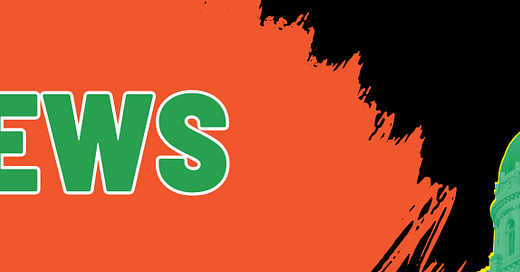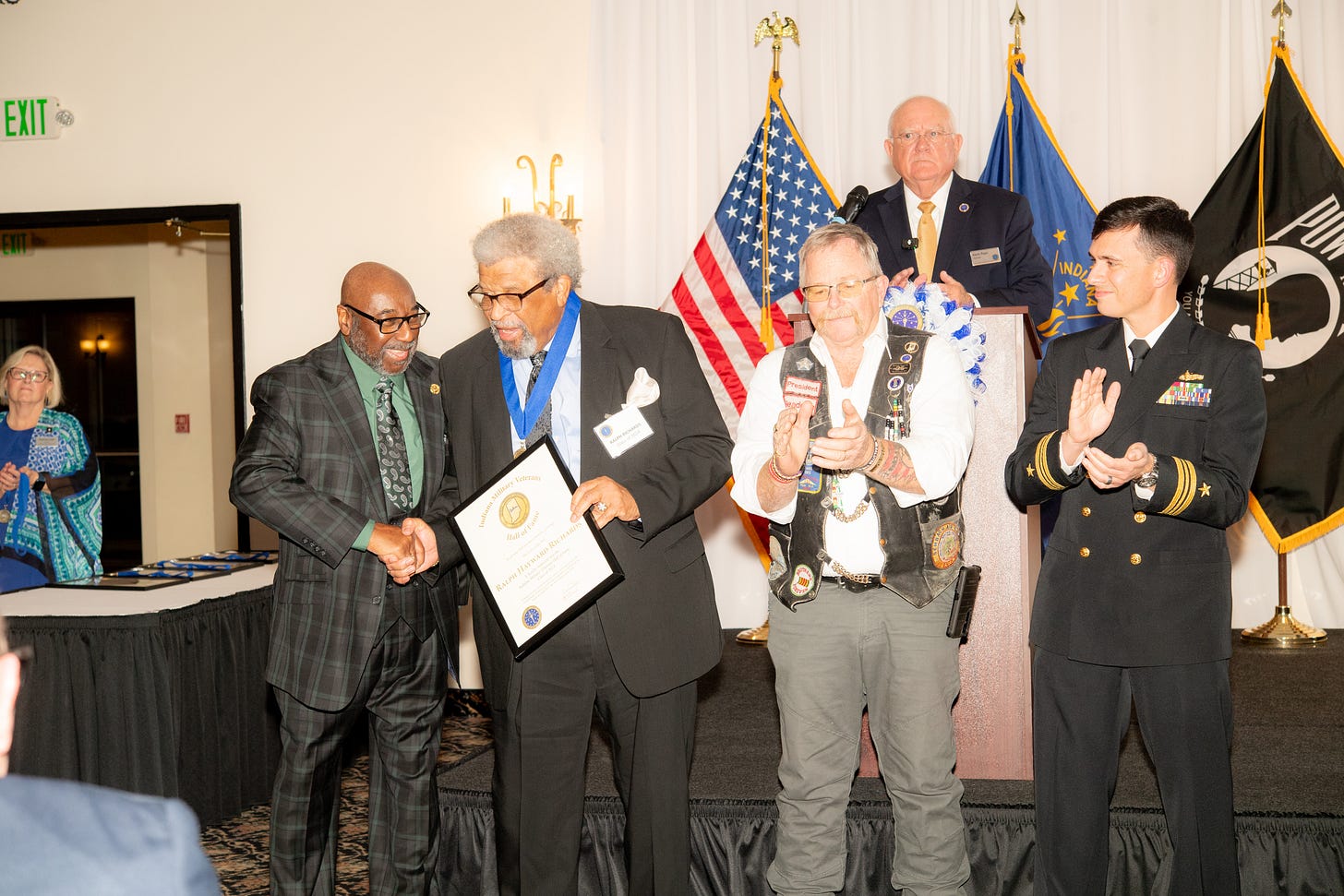Indiana Black Legislative Caucus Monthly Updated
Welcome to the Indiana Black Legislative Caucus’ newsletter, where we will provide legislative and community updates for you from around the state. Please reach out to our office by contacting IBLC@iga.in.gov if you have any questions, concerns or thoughts on what you’d like to see in this newsletter.
On Tuesday, Nov. 19, lawmakers returned to the Statehouse for Organizational Day to get prepared for the upcoming legislative session. Newly-elected members were sworn in, and we fought for transparency in our House rules.
This session, the IBLC welcomes three new members: State Rep. Alex Burton (D-Evansville), State Sen. La Keisha Jackson (D-Indianapolis) and State Sen. Mark Spencer (D-Gary.) Recently, Burton and Jackson were elected as the IBLC's chaplain and treasurer, respectively.
The 2025 session is scheduled to begin Jan. 8, and I'm excited to get to work for House District 1 and Hoosiers throughout the state. This session, the Indiana Black Legislative Caucus will focus our efforts on increasing access to health care and improving health outcomes for Hoosiers. We'll have more information available on that agenda in the coming weeks.
This year is also a budget session, and we in the House Democratic Caucus are determined to help make the state of Indiana work for Hoosiers.
Porter: Part of economic development is addressing educational inequity
Below is an opinion piece I would like to share by the Ranking Minority Member of the House Ways and Means (Budget) Committee and member of the Indiana Black Legislative Caucus (IBLC), State Rep. Gregory W. Porter (D-Indianapolis). It’s a great source of information regarding racial disparities in higher education and Indiana’s work-based learning programs:
For decades, the ticket to success has been post-grad education. Michael Hicks, leading economist from Ball State University, sums it up well with the phrase "education is the path to a middle-class life." This doesn't mean that those who head straight into the workforce can't be successful. I'm a strong believer in choosing the path that's best for you. However, I can't deny that jobs requiring degrees usually offer higher pay, consistent wage growth and more security. There are other ways to achieve middle-class life, but the attainment of a college degree is the most likely path to that outcome.
Unfortunately, Hoosier students are moving away from degrees. Indiana's college-going rate has plummeted from 65% to only 53% since 2015. COVID-19 has exacerbated the problem, and the cost of schools is another deterrent. We've discussed this issue, but we've missed a key component: our Black students. College enrollment is dropping across the board, but the decline is more severe among students of color. The college-going rate for Black students has dropped shockingly low to 44%. There's been some progress through the Indiana Black Legislative Caucus (IBLC) with auto-enrollment for the 21st Century Scholars Program. But more should be done, especially across the aisle, to change the tide.
Looking at Indiana's education landscape, it's easy to understand why Black students forgo college. Let's look at the most recent college equity report: only 17% of Black students received an Honors diploma, only 40% earned AP or dual credit and only 27% met early success benchmarks. To top if off, the U.S. Supreme Court ruled that affirmative action was unconstitutional. These measures encouraged minority students to apply with the promise of equitable admissions. College may not be for everyone, but Black students are clearly underserved.
Post-grad employment opportunities are similarly dismal. The GOP majority has focused on work-based learning, but Black students are underrepresented in those programs. Registered apprenticeships are a moderately successful program with 21,768 active apprentices who make an average wage of $19.50 an hour. But Black Hoosiers only make up 8.5% of Indiana's active apprentices. A recent report for the Fiscal Policy Committee highlighted that a "participation ad achievement gap remains for African Americans and other minority populations." Even when they do these programs, they still face inequity in the workforce. Black Hoosiers experience racial disparities in their wages, with differences as large as $2,000 after graduating from adult education or technical programs.
It's a Catch-22. We encourage Black students to join work programs instead of college. Then in these programs, they receive lower pay, struggle to get credentialed and struggle to find lasting employment. How do we address these disparities? How do we keep Indiana from falling further behind other states? We could start by re-examining the tax cuts given to big companies or redirecting the "embarrassment of riches" given to non-transparent development projects. Just think, if we "cut the fat" on corporate tax cuts and non-transparent incentives provided for Indiana Economic Development Corporation's (IEDC) projects we could fully fund education. College degrees are better for economic development, especially for individual wage growth, than the LEAP district.
Let's redirect our limited resources to human infrastructure which is undoubtedly more important to Indiana's economic success. Let's begin by funding our universities to the national average. Let's encourage college attendance since it's the easiest path to the middle class. Let's provide support to those pursuing degrees or job training by fully funding child care, transportation and educational grant programs. If we continue following our current path, Indiana will fall further behind with the most adverse effects felt by Black and other marginalized Hoosiers.
Rep. Bartlett honors Indiana veterans
On Nov. 12, State Rep. John Bartlett (D-Indianapolis) helped to induct 15 Hoosiers into the Indiana Military Veterans Hall of Fame. These brave men and women, several of whom were inducted posthumously, served in all branches of the United States Armed Forces.
If you know a veteran you would like to see honored next year, nominate them by Aug. 1, 2025.
The 2024 class of inductees for the Indiana Military Veterans Hall of Fame are:
· Paul Frank Baer (posthumous induction)
· Aletha Calloway
· Donald Ray Canaday
· Paul Michael Cauley
· Thomas Gantz Cassady (posthumous induction)
· Gerald L. Clewlow
· Norris Furman Dendy (posthumous induction)
· Andrew Jacobs Jr. (posthumous induction)
· Lester H. Keller (posthumous induction)
· Arno Childs Land (posthumous induction)
· Ralph Hayward Richards
· Maurice Edwin Shearer (posthumous induction)
· Philip Max Spreuer (posthumous induction)
· Michael Ray Tomes
· James Milton Thompson
KKK fliers found throughout Indiana
Unfortunately, flyers promoting he Ku Klux Klan have been found in various parts of the state. The IBLC strongly condemns this act of hate and divisive rhetoric which has no place in our communities.
Indiana's strength lies in its diversity, and together, we will ensure that all Hoosiers feel safe and valued. If you encounter suspicious or harmful activity, please report it to local police or seek advice on what to do here.
Happy Thanksgiving
IBLC honors Marshall "Major" Taylor
On Nov. 19, members of the IBLC posthumously award cycling icon Marshall "Major" Taylor with the Distinguished Hoosier Award during a ceremony at the Indiana Statehouse. Taylor's great-granddaughter, Karen Brown Donovan, accepted the award.
Born in 1878, Taylor broke barriers to become the first Black athlete to become a world champion in cycling, despite the Jim Crow laws rampant at that time. Taylor would go on to accrue over 20 records and became an international superstar.
As I said during the ceremony, Taylor's story is not just one of triumph on a racetrack, but of courage in the face of adversity. He competed during a time when the color of his skin meant he was often excluded from competitions, subjected to harsh discrimination and even faced with threats of violence. Yet, despite the odds, Taylor's will to succeed remained unshaken. Even more than his victories, it was his refusal to be silenced or sidelined that made him a true champion.

Operation Holiday Program
The Military Family Relief Fund (MFRF) is accepting applications for its Operation Holiday Program through Dec. 13. Families who qualify for assistance can receive $200 for a holiday meal plus $300 per dependent child. To apply, click here.
IBLC in the News:
Education, political officials worry about education as Trump appoints McMahon as secretary ft. Rep. Vernon Smith
Medicaid members, providers continue to face challenges with FSSA's Pathways implementation ft. Rep. Robin Shackleford
Gary's Harvest Feast fills the stomach and the spirit ft. Rep. Vernon Smith
https://www.chicagotribune.com/2024/11/23/garys-harvest-feast-fills-the-stomach-and-the-spirit/
State legislators, union officials discuss priorities ahead of 2025 legislative session ft. Reps. Ragen Hatcher, Earl Harris Jr. and Carolyn Jackson
Indiana tax study criticized by Democrat lawmaker ft. Rep. Gregory W. Porter
https://www.wzdm.com/2024/11/22/indiana-tax-study-criticized-by-democrat-lawmaker/
Trailblazing cyclist 'Major' Taylor honored posthumously with Distinguished Hoosier Award
In other news:
Indianapolis man sues two landlords for disadvantaging Black renters
Mozel Sanders Foundation prepares to serve 10,000 Thanksgiving meals
Developer looking to build $500 million, 1-million-square-foot data center that will pay workers up to $175,000








